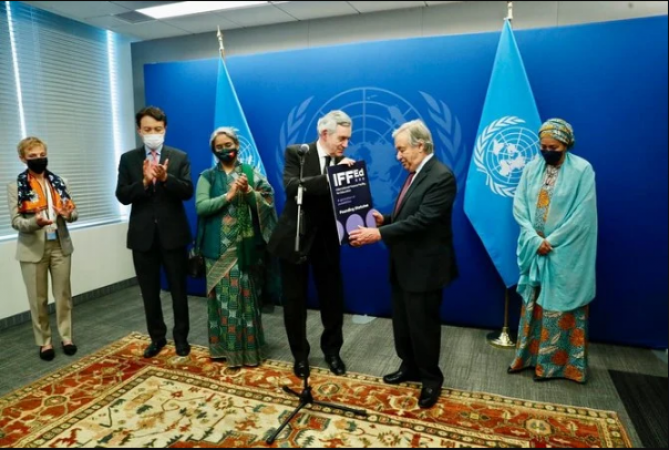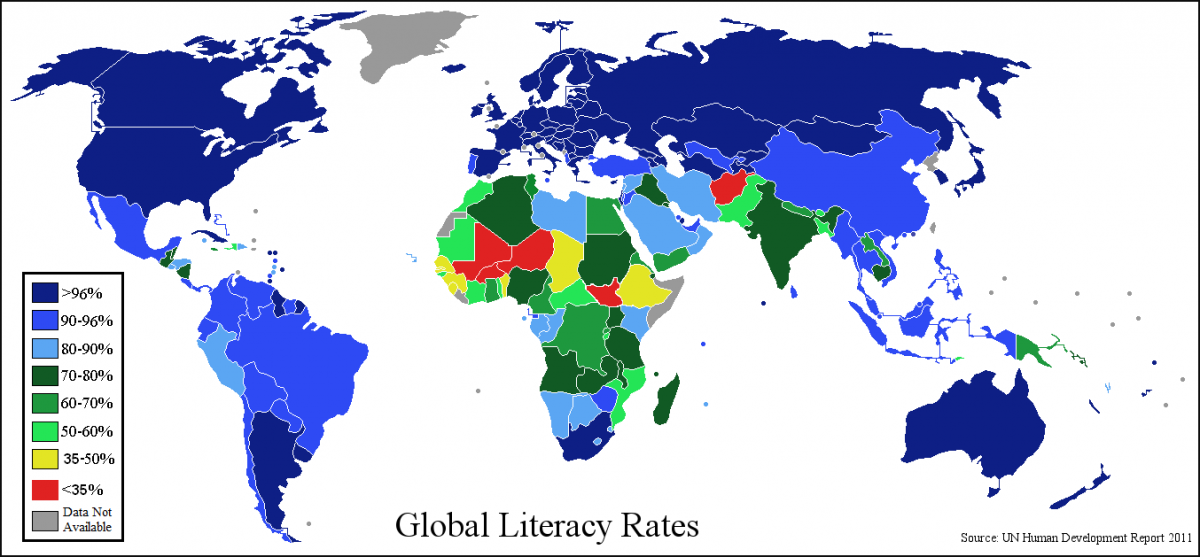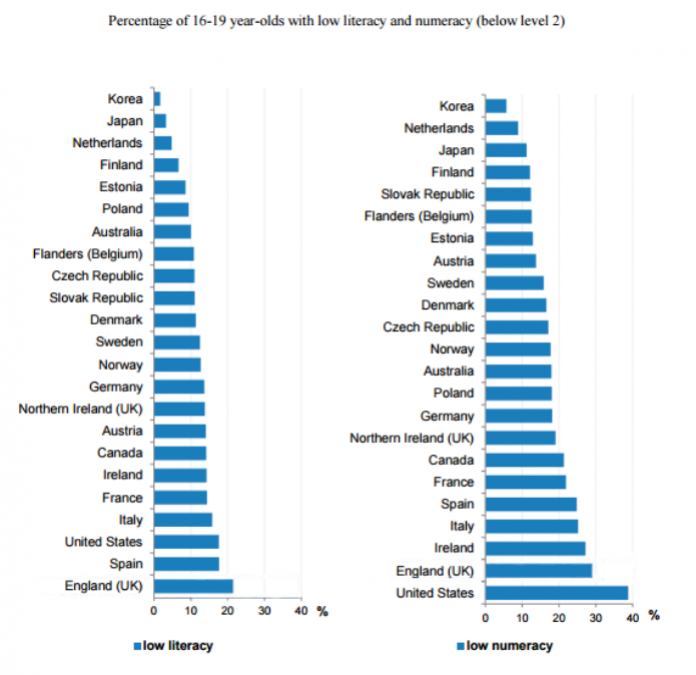
NewYork: Currently, 222 million young people living in conflict- and disaster-affected areas of Africa, Asia, the Middle East, and South America lack access to a continuous or high-quality education.
78.2 million of these children are not in school, and 119.6 million of them are not proficient in reading and mathematics despite attending school, according to research by Education Cannot Wait, the UN's global fund for education in emergencies and protracted crises.
On September 16, dubbed "Mobilization Day" for the Transforming Education Summit, a "Youth Declaration on Transforming Education" was delivered to Antonio Guterres, secretary-general of the UN, against this depressing backdrop.

In order to design and guarantee a fully inclusive and accessible educational system, the document outlines 25 principles, purposes, and demands.
Nearly 500,000 young people from more than 170 nations and territories participated in extensive consultation processes that led to the declaration. Through more than 20 surveys, both offline and online, as well as social media campaigns, they contributed.
In order to transform education and its systems at the global, regional, national, local, and grassroots levels, we assert the necessity of an intersectional, intersectoral, and cross-cutting approach based on the principles of human rights, sustainable development, gender equality, climate justice, inclusion, equity, equality, and solidarity.
"You are telling us authorities, experts, adults, I should say boomers, to stop being condescending, to stop being wiser-than-thou, to stop pretending we have all the answers when the truth is we didn't even get the questions right," Leonardo Garnier, special adviser to the Transforming Education Summit, said in a speech to the document's signatories.
"I really commend you for all of this, and I appreciate you keeping the hope alive."
Even more specific language was used by Guterres to describe the problem. The issue, he said, is that the educational systems in place all over the world are not adequate.
We need education as a factor to prepare us for the future rather than the past, to learn how to learn, and to prepare societies that are societies based on cooperation and solidarity, rather than societies based on people's blind competition with one another.
"This summit is a crucial opportunity to present a clear vision of this transformative nature of what we have to do about education, and your declaration is a very important tool to make us move in the right direction," he continued.
Ministers of education from a variety of nations, including Canada, Ecuador, Sierra Leone, Portugal, and Chile, participated in the summit's opening day, which started just before the 77th session of the UN General Assembly.
Youth representatives and leaders of education-related NGO leaders were among the other speakers. Amani Alkhiami of Saudi Arabia, one of the youth delegates, spoke about the changes taking place in the Kingdom as a result of Crown Prince Mohammed bin Salman's Vision 2030 reform initiative.

Young people make up about two-thirds of the population in Saudi Arabia. These young people are fast-moving, digital natives who are more capable and empowered than ever, according to her.
"Under the ambitious 2030 Vision, Saudi Arabia is rapidly developing, changing, and pushing the limits of what is possible while working with nations from all over the world on issues like development and sustainability, security, and education for lifelong learning.
Since this transformation is ongoing rather than fleeting, we require flexible and cutting-edge solutions that can adapt to the needs of different generations.
The second day of the summit, dubbed "Solutions Day," was attended by Saudi Arabia's minister of education, Dr. Hamad bin Mohammed Al-Sheikh. He spoke at a high-level session titled "Effective Educational Ecosystems: Solutions for Open Digital Contents."
He emphasised the value of free online resources for teachers, parents, and students.
For students with various backgrounds, interests, and needs, he said, "advanced technologies provide effective, equitable, and comprehensive access to open electronic resources and platforms at any time and from anywhere in the world." "Satellite channels, digital platforms, and text messages" are a few examples of the outlets, he continued.
Saudi Arabia came in at number 35 out of 191 nations in the most recent UNDP Human Development Index report for 2022. In addition, the Kingdom ranked 10th among the G20 nations and advanced the most between 2019 and 2021.
The ministerial sessions were designed to give international partners a forum to rally support for beginning or growing initiatives related to the summit's themes, with a particular emphasis on how the financial crisis is affecting education.
Amina Mohammed, the UN's deputy secretary-general and chair of the Sustainable Development Group, stated in her address on the second day, "But (to put it) loud and clear, we need more and better financing.
"We can't do this with just fresh air; it needs fuel, and that fuel must come from our domestic resources and from the assistance we require from the international community in solidarity."
Guterres agreed with Mohammed's assessment and stated that it was crucial to find new ways to finance education.
He declared that "education is the cornerstone for tranquil, successful, and stable societies." "Reducing investment practically ensures more severe crises later on."
At the summit's joint press conference, UN Special Envoy for Global Education Gordon Brown made the largest-ever single investment in global education. He spoke with Guterres and Mohammed.
The International Finance Facility for Education, which oversees the fund, anticipates that it will eventually increase from its initial $2 billion to $5 billion and then to $10 billion.
According to Brown, a former British prime minister, the fund will primarily benefit refugees and children growing up in countries experiencing crises. "We believe it can transform the prospects of millions of children," Brown said.
According to Guterres, the facility is a mechanism to increase the resources available to multilateral banks to provide affordable education financing rather than a new fund.
The Global Partnership for Education, which offers grants and other assistance, is just one example of an existing tool that it will "complement and work alongside," he said.
Heads of state and government from all over the world were expected to present a national statement of commitment to transform education on Monday, the third day of the summit, which was dubbed "Leaders' Day."
Additionally, they had roundtables and discussions on topics like the learning crisis, funding for education, the digital transformation of education, and sustainable living planned for them.
Saudi Arabia's GDP will grow at the fastest rate in ten years by 2022
Hong Kong stocks slumps as Federal Reserve rate-hike recession worries
Slowing export momentum and zero-Covid pose challenges for migrant workers